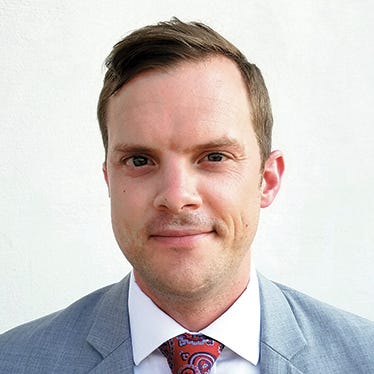Morningstar Enters Risk Wars With Launch of Risk EcosystemMorningstar Enters Risk Wars With Launch of Risk Ecosystem
Morningstar is facilitating direct indexing with its latest risk metric toolkit, Risk Ecosystem, a mix of PlanPlus financial planning and FinaMetrica risk evaluation.

Morningstar has rolled out a new risk metric and evaluation system, called Morningstar Risk Ecosystem, marking the first major deployment of its 2020 acquisition of PlanPlus Global, a financial planning (PlanPlus) and risk metric (FinaMetrica) software developer. Terms of that deal have not been disclosed.
Risk Ecosystem provides advisors with two points of risk measurement: a Portfolio Risk Score, for measuring investment risk, and Risk Comfort Range, for evaluating a client’s risk tolerance. Portfolio Risk Score is available in the Morningstar Advisor Workstation, for U.S. and Canadian advisors, and both features are available through the firm’s Enterprise Components platform, with continuous deployment across other platforms through the end of the year.
Morningstar's Risk Ecosystem toolkit is the only risk metric evaluation feature needed for Sheryl Rowling, former principal of Rowling & Associates, Inc. and head of rebalancing solutions at Morningstar. A FinaMetrica user for years—long before Morningstar made its acquisition—Rowling called the tool the "gold standard" for risk because of its research-based methodology.
"Some of the other tools I've looked at have had prettier reports," she said, "but I opted for the strength of the research behind FinaMetrica." She's looked at Riskalyze and HiddenLevers, the latter now owned by Orion, as alternatives to FinaMetrica, but they didn't meet her research-related requirements.
As the “Ecosystem” name implies, the two tools are designed to work together, with advisors matching clients’ risk tolerances to portfolios with similar characteristics.
“Traditional risk profiling is typically inadequate and does not meet the true needs of investors or advisors serving them. The industry has, for too long, focused on measuring only the risk of investments within a portfolio, resulting in a commoditization of investment advice,” said Jeff Schwantz, head of client advisor experience for Morningstar, in a statement. Morningstar, with the Ecosystem introduction, intends to draw a line between risk metric tools that just measure portfolio risk and are primarily focused on compliance, and its own tool set, which stitches together client and portfolio risk metrics.
In sewing those stitches, executives at Morningstar and PlanPlus Global had to contend with an acquisition timeline that coincided with the coronavirus pandemic. Morningstar’s purchase of the Toronto-based firm was announced in early March 2020, just days before a wave of pandemic-related lockdowns swept across the U.S. and Canada. PlanPlus Global founder Shawn Brayman, now the Morningstar director of financial planning methodology, has still not stepped into a Morningstar office, as Canadian lockdown protocols have hampered travel.
Yet Morningstar’s acquisition of PlanPlus Global, and the subsequent deployment of its capabilities, is complete. With Risk Ecosystem, advisors are getting a scientifically sound measurement of risk and risk capacity, said Brayman.
“We've had millions of respondents over multiple decades [use PlanPlus Global’s methodology],” he explained. “We've had our data sanitized and made available to hundreds of academic researchers all around the world, who slice and dice it, and they come back and say: ‘This is measuring risk tolerance.’ It's reliable; it's repeatable. I don't get different answers every time the client takes a test. It is scientifically measurable as something that works.”
Meanwhile, other risk profile questionnaires use “a hodgepodge” of risk tolerance questions and “shove it together and make up a scoring algorithm,” said Brayman.
Now that they are deployed, Risk Ecosystem’s features will find their way into Goal Bridge, Morningstar’s goal-based financial planning software, the integration of which is already underway, said Schwantz. Risk Ecosystem's features will also facilitate advisors’ use of direct indexing, helping advisors provide a greater degree of customization for investors, based on the risk profile of the end-client, his or her goals, and any available investments.
While Morningstar has no plans to build its own investment products based on the data collected and evaluated via Risk Ecosystem, Schwantz foresees investment manufacturers using that information to build better products. “If we provide advisors and investors with better information that identifies an opportunity for better outcomes, that's what it's all about,” he said. Subsequent “evolved” product manufacturing won’t be far behind.
About the Author
You May Also Like







